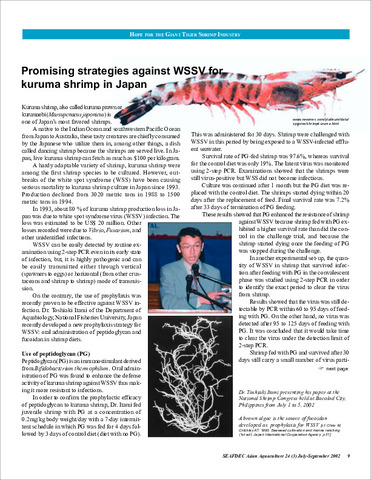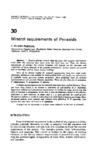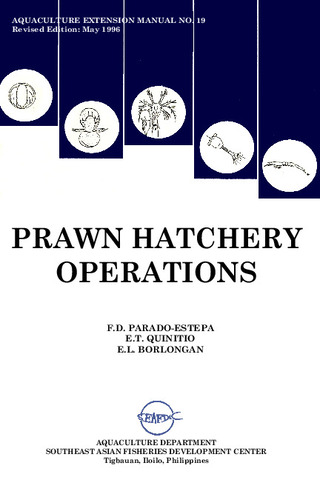人工催熟による養成クルマエビの効率的な採卵条件

Associated URL
www.jstage.jst.go.jpDate
2020Page views
568Metadata
Show full item recordCited times in Scopus
Share
Abstract
Efficient spawning conditions through artificially induced maturation by unilateral eyestalk ablation were investigated for the kuruma prawn Marsupenaeus japonicus. After unilateral eyestalk ablation, 24℃ was the most efficient water temperature for spawning (rate, number of spawning times, and number of eggs) in the comparison of four water temperatures (20, 22, 24, and 26℃). Egg diameter tended to increase with decreasing water temperature. As a result of unilateral eyestalk ablation at different molting stages, the postmolt stage was better in spawning rate and survival until spawning. Based on these results, individuals that seemed to be in the postmolt stage were selected manually, subjected to eyestalk ablation, and reared at 24℃. Prawns were randomly split into two feeding groups of compound feed or live polychaete. Unilateral eyestalk ablation enabled spawning of the group consuming the compound feed. For both feeding groups, most individuals spawned on Day 10.
Description
Text in Japanese with English abstract.
Keywords
Marsupenaeus japonicusSuggested Citation
Fuseya, R., Tamaki, M., Hayashibara, T., Katoh, M., & Shimizu, H. (2020). 人工催熟による養成クルマエビの効率的な採卵条件. Nippon Suisan Gakkaishi , 86(5), 395-401. https://doi.org/10.2331/suisan.20-00024
Subject
Taxonomic term
Collections
Related items
Showing items related by title, author, creator and subject.
-
Promising strategies against WSSV for kuruma shrimp in Japan
Itami, Toshiaki (Aquaculture Department, Southeast Asian Fisheries Development Center, 2002) -
Mineral requirements of Penaeids
Piedad-Pascual, F. (Institut Francais de Recherche pour l'Exploitation de la Mer, 1990)Marine shrimps absorb minerals from their aquatic environment aside from the minerals that come from the food they eat. Thus, the dietary requirement of shrimps for certain minerals will depend on the amounts and availability ... -
Prawn hatchery operations
Parado-Estepa, Fe D.; Quinitio, Emilia T.; Borlongan, Emeterio L. (Aquaculture Department, Southeast Asian Fisheries Development Center, 1996-05)The manual, an updated version of the 1984 SEAFDEC/AQD manual, presents the underlying principles and step-by-step instructions of prawn larval and post-larval rearing. The techniques described are not only applicable to ...





